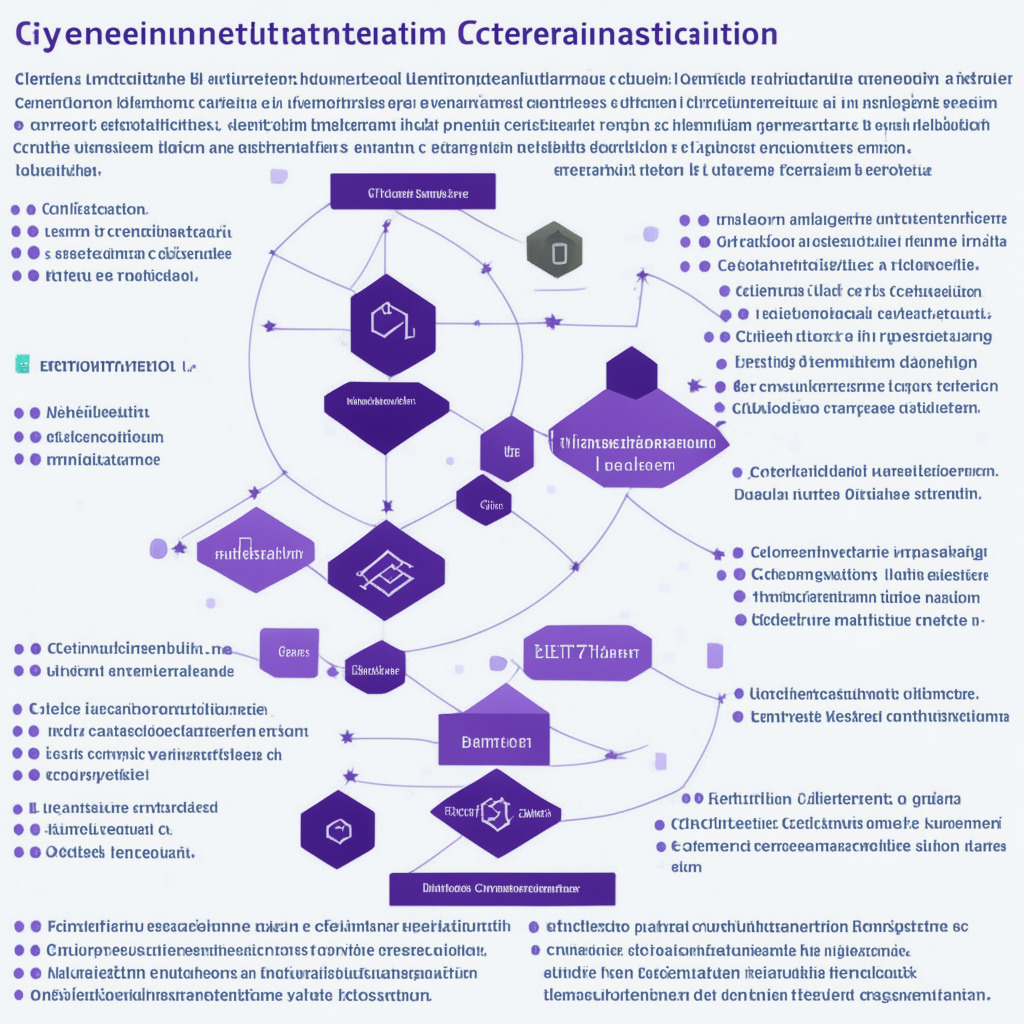“Liquid Staking Derivatives (LSD) pose potential harm to the Ethereum ecosystem due to the centralization of node operators. This centralization reduces competition, opens up potential for censorship, increases risk of diminished security and risks collusion. The solution may lie in distributed validator technology to enhance decentralization.”
Search Results for: Censo
Crypto to the Rescue: Dissecting Debanking, Financial Liberties and the Rise of Cryptocurrencies
“This episode highlights the long-standing practice of banks denying services based on arbitrary reasoning, an issue familiar to the crypto community. Crypto advocates push for innovations that remove human bias from banking decisions, seeing cryptocurrencies as the solution to financial censorship. Yet, as numerous individuals are debanked annually, the question of institutional accountability lingers.”
Gag Order in Crypto Case: Balancing Fair Trial and Blockchain Transparency
“Concerns arise as a U.S. federal judge suggests a gag order in the case of a former cryptocurrency CEO, Sam Bankman-Fried (SBF), potentially impacting transparency within the blockchain industry. This order might set a precedent of censorship, affecting public perception and understanding of the blockchain and crypto ecosystem.”
Dissecting the Roles of DApps vs Protocols in the Decentralized Ecosystem
“DApps are software programs run on a decentralized network of computers, assuring immutability, security, and transparency. Meanwhile, protocols refer to the underlying rules and standards defining decentralized network operations. Both play distinct roles within the decentralized ecosystem, aiding blockchain’s steady ascent.”
Exploring FedNow’s Implications: An Unintentional Preparation for CBDC or a Privacy Nightmare?
“The U.S. Federal Reserve’s FedNow initiative may inadvertently pave the way for the necessary infrastructure required by a potential CBDC (Central Bank Digital Currency) in the U.S. While not a digital token, it creates a platform that could facilitate this. The prospect has raised fresh concerns over potential surveillance and control around a digital dollar.”
FedNow vs Cryptocurrencies: A Leap Towards Centralized Digital Finance or a Threat to Decentralization?
The US Federal Reserve’s new FedNow Service facilitates instant money transfers 24/7, which could be considered a challenge to cryptocurrencies known for similar features. However, cryptocurrencies’ decentralized nature, transparency, and immunity to manipulation or censorship present a stark contrast to traditional finance systems. Concerns arise as some view FedNow as a step towards Central Bank Digital Currency, potentially enabling government control over citizens’ lives.
Exploring ZK Proofs: Privacy Panacea or Another Layer of Web Complexity?
“ZK proofs, or zero-knowledge proofs, are cryptographic measures that could solve internet users’ privacy concerns. They secure data from the onset, only revealing essential aspects, potentially reshaping the internet framework. However, they may also add to the complexity of online security measures.”
Revolutionizing Crypto Transactions: Mutiny’s Web-Based Bitcoin Wallet Pushes Boundaries
Bitcoin wallet startup, Mutiny, released a beta version of self-custodial Lightning wallet that bypasses app distributors like Apple and Google. The firm addressed Bitcoin product censorship by launching Zapple Pay, enabling Bitcoin tipping and continuous upgrades without app store restrictions. Besides this, the wallet aids in liquidity management and includes a social tipping feature via the Nostr Wallet Connect protocol.
Intriguing Possibilities for Bitcoin’s Future: AI’s Currency and a Market Influenced by Federal Reserve Projections
The ex-CEO of BitMEX, Arthur Hayes, argues Bitcoin’s potential to be the go-to currency for artificial intelligence due to its constant availability, digital makeup, and automation. Bitcoin stands out with its scarcity, censorship resistance, and value storage. Bitcoin’s market value is also closely tied to investors’ interpretations of the Federal Reserve forecasts and employment data.
Decentralized Social Media: Empowering Users or Opening Pandora’s Box?
“DeSo is a decentralized social media system built on blockchain technology, aiming to counteract issues with traditional social media platforms. By keeping user identities, content, and networks on-chain, DeSo proposes a platform where content ownership mirrors Bitcoin’s security. However, such systems can often lack moderation, potentially leading to cyberbullying, misinformation, or misuse.”
Navigating Metaverse Governance: EU’s Push for Innovation Meets Regulatory Challenges
The European Commission’s report suggests the necessity of a new kind of governance for the emerging metaverse, promoting advancements in societal segments while easing regulations to boost innovation. Furthermore, it highlights the need for international stakeholder involvement for creating a secure, open next-gen internet that upholds EU values.
Reviving Terra Luna Classic: Six Samurai’s Ambitious Q3 Spend Proposal & Ecosystem Impact
The Terra Allies’ Six Samurai team aims to revive the Terra Luna Classic (LUNC) ecosystem with a comprehensive Q3 plan and a $116,000 budget. Focusing on crucial milestones like migrating to Columbus-6 and listing Terra Classic on Keplr’s Web Interface, the team demonstrates dedication to innovation in the blockchain space.
Crypto City Spotlight: Sydney’s Blockchain Culture, Challenges, and Education Opportunities
Explore Sydney’s vibrant crypto culture, financial infrastructure, and blockchain education courses in this “Crypto City” guide. Learn about notable projects, the history of crypto controversies, and key figures shaping the industry in Australia’s first-ever Bitcoin ATM city.
Etherscan’s Code Reader: A Glimpse into Smart Contracts with OpenAI’s Help
Etherscan is beta testing a new feature called Code Reader that allows users to query OpenAI’s large language model for researching solidity smart contracts. This intuitive tool provides valuable insights for developers and non-developers to better understand smart contract operations and functionality. However, it shouldn’t be relied upon in isolation.
Unrestricted LLM Interactions: Erasing Boundaries or Opening Pandora’s Box?
The “Start Reply With” feature in Oobabooga’s text generation web UI allows users to elicit unrestricted responses from Large Language Models (LLMs), enabling uncensored and free-flowing dialogues. However, it raises concerns about ethical implications and responsibilities, requiring balanced consideration to ensure responsible AI implementation.
Scaling Blockchain: Monad CEO Talks L1 vs L2 Solutions, HFT in Crypto, and Mass Adoption
Keone Hon, CEO of Monad Labs, emphasizes the importance of focusing on Layer 1 blockchain infrastructure for mass crypto adoption. Monad, a new high-performance Layer 1 blockchain, aims to cater to a wide range of users, addressing Layer 2 concerns like centralization and cost.
Unlocking High-Storage Applications: Pros, Cons, and Conflicts in Web3 and Blockchain Adoption
The potential of blockchain technology to revolutionize high-storage applications is explored in this article, discussing its benefits in user control, privacy, and data ownership. Challenges such as scalability limitations, storage resource optimization, and data privacy must be addressed for blockchain to support high-storage applications effectively.
Aevo’s Mainnet Launch: Pioneering the Future of Decentralized Derivatives Exchanges
Ribbon Finance has launched Aevo, a decentralized derivatives exchange offering Bitcoin perpetual futures and Ether derivatives. Aevo aims to attract users from centralized exchanges with its user-centric design, layer-2 Ethereum optimistic roll-up, and off-chain order book for convenient trading.
Exploring Red Horizon: Streamlining Urbit Usage for a Decentralized Future
Chorus One launched Red Horizon, a software streamlining developers’ interaction with the Urbit server, an architectural blockchain-adjacent framework. Urbit aims to create a peer-to-peer network of personal cloud servers, ensuring user privacy and uninterrupted connection. Red Horizon removes technical barriers, simplifying onboarding and offboarding to Urbit, which currently hosts over 4,000 personal servers.
Revolutionizing Crypto Custody: How Mobile-Based Self-Custody Wallets Challenge Traditional Solutions
FinTech firm Censo recently launched a mobile phone-based self-custody wallet for institutions and organizations, offering a decentralized key management solution that is more user-friendly and cost-effective than existing technologies. Leveraging secure hardware enclaves in modern mobile devices, Censo’s open-source wallet presents a compelling alternative to MPC-based custody solutions.
China’s Role in AI Regulation: Balancing Innovation and Global Security Concerns
OpenAI CEO Sam Altman emphasizes the importance of including China in shaping AI regulations due to its wealth of AI talent. Amid growing national security concerns, international collaboration is crucial for addressing challenges posed by AI advancements, ensuring safety and fostering technological innovation.
Meta’s LLaMA Drama: Senators Scrutinize Leak and Potential Misuse of AI Model
U.S senators raise concerns over Meta’s large language model (LLaMA) potential misuse in harmful activities, questioning Meta’s risk assessment and preventive steps. LLaMA’s leak increased accessibility to high-quality AI models, prompting scrutiny on the balance between innovation and risk.
SEC Actions Against Exchanges: Analyzing the Impact on Crypto Companies’ US Operations
The SEC’s actions against crypto firms like Coinbase and Binance have sparked debates on the future of these companies in the U.S. Some argue that regulatory pressures will bring clarity and benefit businesses, while others believe challenges could force firms to focus on more accessible jurisdictions, leaving smaller players behind.
Elon Musk and RFK Jr. Dodge Crypto Talk, Focus on AI and US Dollar Concerns
Elon Musk and Robert F. Kennedy Jr discussed AI, social media censorship, and COVID misinformation but avoided Bitcoin and digital assets in their conversation. While the digital currency market remains crucial, AI and information handling demand equal attention in our technology-driven world.
Lightning Network: A True Scaling Solution or Overhyped Innovation? Pros, Cons, and Conflicts
The Lightning Network, a Bitcoin layer 2 protocol, aims to address Bitcoin’s scaling issues, such as high transaction fees and slow blocks. While promising, it remains experimental, and a more pragmatic view suggests that it may not solve all types of transactions. Diversified thought and constant innovation keep the cryptocurrency space robust and resilient.
Decentralization vs Centralization: Managing AI Extinction Risks with Crypto Principles
The crypto industry’s decentralization mindset could play a role in AI risk mitigation, addressing concerns of centralization and monopolization. A balance between national government regulation, international treaties, and decentralized governance models is needed for effective collaboration between governments and the crypto industry, ensuring AI technology develops safely.
Ethereum’s Journey: Reshaping Finance, Debating Principles, and Navigating Challenges
Ethereum has evolved into the most active blockchain, supporting novel financial systems and reshaping future payment methods. Despite co-creator Vitalik Buterin’s concerns of a “dystopian future,” Ethereum has demonstrated remarkable flexibility and foresight, adapting to challenges and pushing technological boundaries in finance and technology.
Building the Web3 Metropolis: Challenges, Solutions, and the Path to a Decentralized Future
The Web3 industry envisions a decentralized, user-centric internet, but struggles to deliver engaging consumer experiences. Public blockchains offer interoperability and peer-to-peer networks, but Web3 must develop a responsive data layer for advanced applications and prioritize enjoyable interactions to attract true residents and realize the virtual metropolis vision.
Centralization in Layer-2 Rollups: Boon or Bane for Ethereum’s Scalability?
Centralization in layer-2 rollups on the Ethereum network might not be a negative aspect, as it reduces centralization pressure on layer-1, according to Stephane Gosselin, former co-founder of Flashbots and Frontier Research founder. Despite concerns, centralized sequencers can coexist with decentralization without undermining blockchain technology’s core principles.
Ledger’s Recover Service: Securing Crypto Self-Custody or Compromising Privacy?
Ledger introduces “Recover”, a product for easier self-custody without compromising security by associating crypto wallets with ID documents. However, concerns over security and privacy have led to backlash, prompting Ledger to speed up their open-sourcing roadmap for increased verifiability.
Loosening Influencer Marketing Rules for Crypto Firms: Balancing Growth and Regulation
French lawmakers revised a bill regulating influencer marketing for crypto firms, now requiring companies to be registered with the Financial Markets Authority. Supporters argue it creates transparency, while critics say it may hinder the industry’s growth and lead to accusations of government interference.
Worldcoin’s Decentralized Identity: Security Breakthrough or Privacy Nightmare?
Worldcoin, co-founded by OpenAI CEO Sam Altman, raises $115 million for its decentralized World ID and World App, a crypto wallet. The project uses zero-knowledge proofs for digital identity security, but faces concerns about surveillance, personal data misuse, and censorship.































